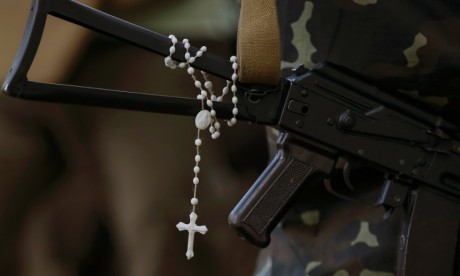(RNS) In the West, the idea that religion is inherently violent is taken for granted by everyone from academics to cab drivers, says British religion scholar Karen Armstrong, the former Roman Catholic nun who wrote the best-selling “A History of God.”
Her new book, “Fields of Blood: Religion and the History of Violence,” picks at the presumably inextricable knot of religion and violence over the course of thousands of years of human history, scrutinizing even the peaceful intent of Jesus.
We asked Armstrong about the Prince of Peace, human nature and the Islamic militancy roiling the Middle East and Africa.
This interview has been edited for length and clarity.
Q: “Fields of Blood” begins in the primordial slime, with a discussion of the evolution of the human brain. What’s with the neurophysiology?
A: We do have these violent impulses deeply embedded in the core of our brain, and without them, our species would not have survived.
When they get mixed up with the more reflective, rational parts of our brain, you get some of the worst catastrophes.
You get Auschwitz — total violence done in a controlled, terrible, rational way.
Q: Why do so many people think that religion is inherently violent?
A: It’s absolutely burnt into our secular Western consciousness.
The “myth of religious violence,” as it’s been called, developed in the 18th century and mirrored what was going on in the states that were emerging in Europe at that time: An absolute ruler had to be sole master of the state, and the church had to be relegated to a subordinate position.
The myth developed that religion was so violent that it had to be kept out of politics. Continue reading
Sources
Additional readingNews category: Features.




